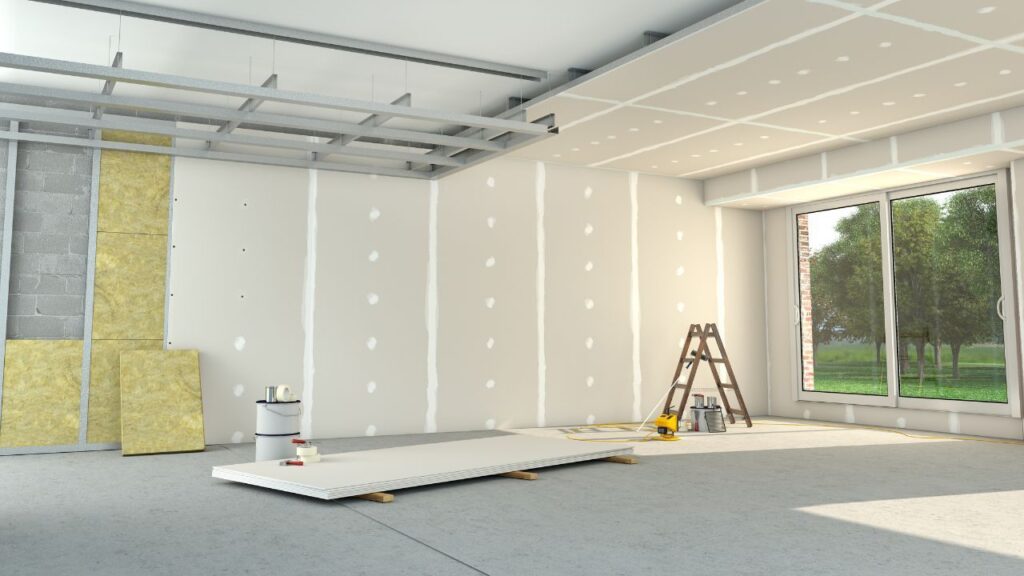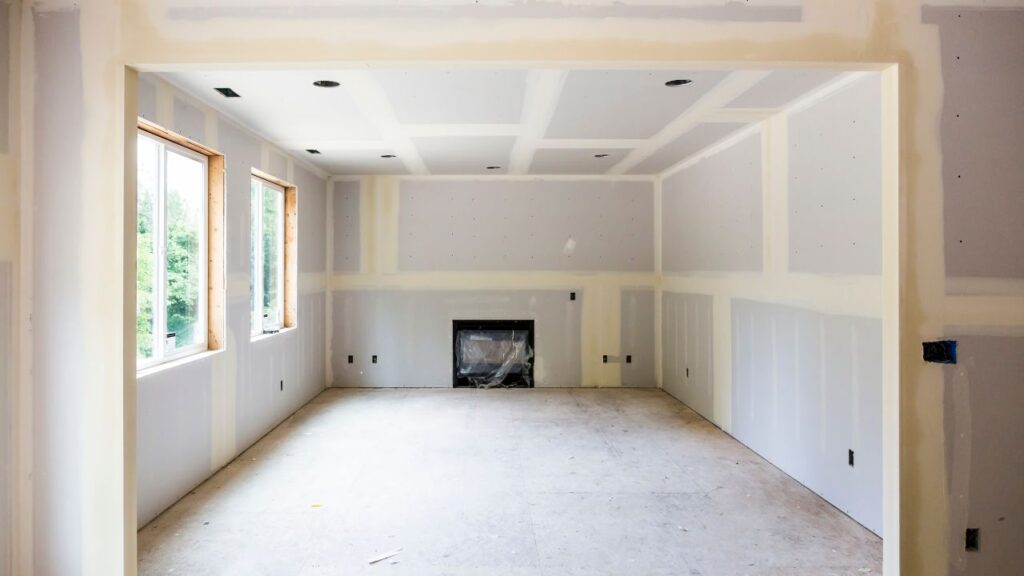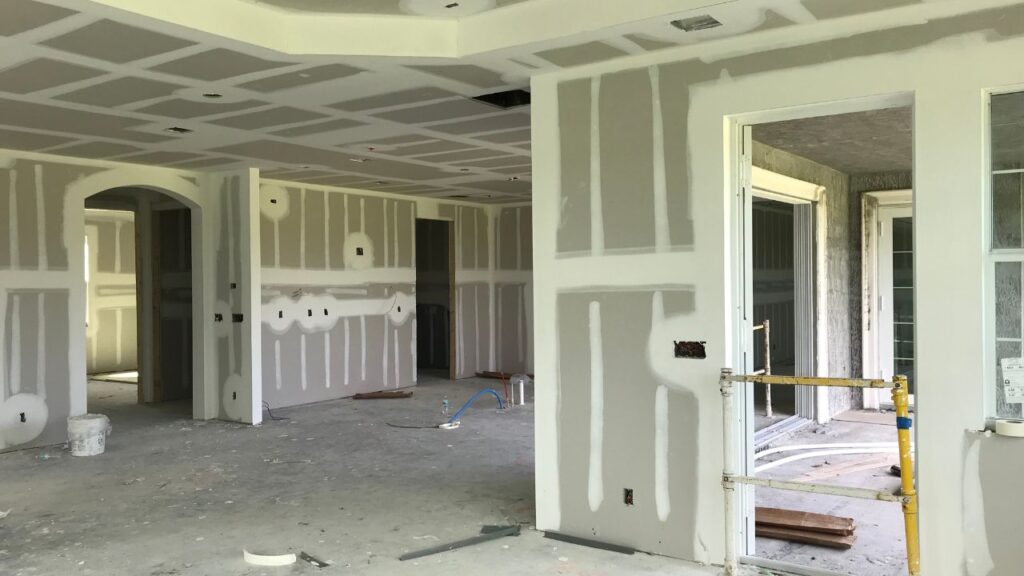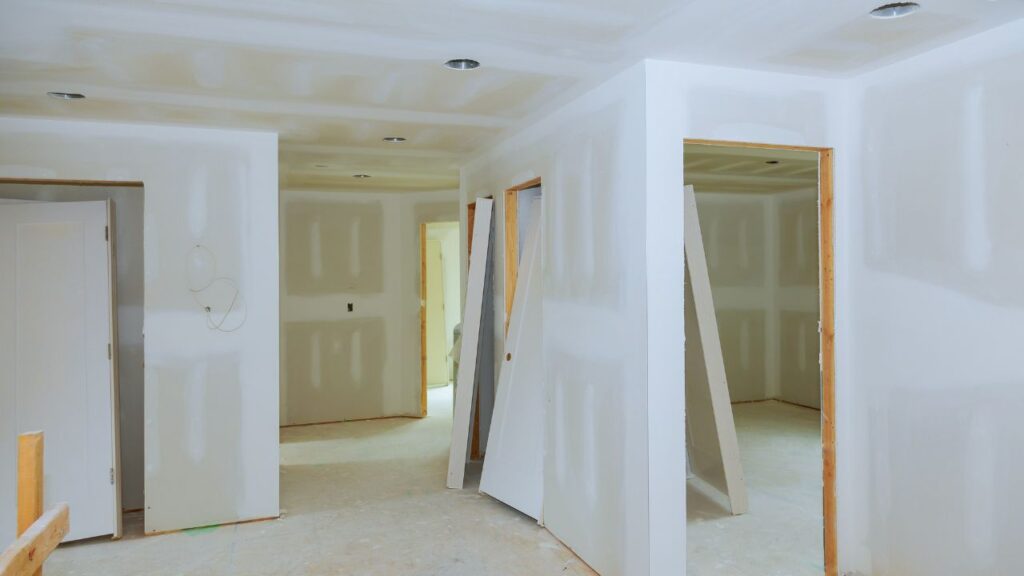Boost Your Drywall Bids – Request a Precision Estimate!
- Accurancy
- Efficiency
- Transparency
- Customization
- Time Saving
- Professionalism
- Cost Control

The cost of drywall installation in Florida involves considering various factors, with distinctions between commercial and residential projects. On average, for residential spaces, the expense ranges from $1.90 to $3.80 per square foot for wall surfaces, encompassing labor and materials required for hanging, taping, and finishing. If you’re contemplating a drywall ceiling in a residential setting, the cost tends to be slightly higher, ranging from $2.50 to $4.80 per square foot. For commercial projects, costs may vary based on the scale and complexity of the undertaking, considering factors such as ceiling height and specialized finishes.

At Estimate Florida Consulting, we recognize the unique requirements of each project and provide accurate estimates for both residential and commercial drywall installations.
The expenses associated with home renovation projects and repairs can fluctuate based on geographical location. To provide a general estimate of drywall installation costs in your area, consider the averages outlined below, showcasing the variations in prices across the U.S.:
State | Cost |
Alabama | $1,600 |
Atlanta | $2,000 |
California | $1,800 |
Mississippi | $2,700 |
Florida | $1,700 |
New York | $2,300 |
North Carolina | $1,600 |
Ohio | $1,400 |
Pennsylvania | $2,300 |
Texas | $1,600 |
The average expense for drywall installation, inclusive of finishing, taping, labor, and materials, now ranges from $2.50 to $5 per square foot. This translates to approximately $100 to $150 per drywall panel. Consequently, for a standard 12-foot-by-12-foot room (utilizing 18 panels), the total cost could be in the range of $1,800 to $2,400.
Enlisting the services of a professional for this undertaking typically incurs fees ranging from $75 to $150 per hour. A seasoned local drywall installation contractor will furnish a tailored quote, often based on square footage rather than time estimates.

To make an informed decision, it’s advisable to reach out to multiple professionals, enabling you to compare pricing structures and review their past project portfolios.
If your budget is constrained, it may necessitate some adjustments in your drywall installation plans. Explore the possibilities available at different price ranges to determine what aligns with your financial constraints.
Suppose you’ve added a small utility room to your home and aim to conceal exposed studs and rafters with basic drywall installation. At this budget, the contractor would hang the drywall, but the scope of work might not encompass taping, mud application, or finishing touches.
For a standard living room spanning approximately 200 square feet, and assuming you’re not pursuing an ultra-luxurious finish or opting for the most expensive drywall panels, a reasonable budget would be around $3,000. This estimate includes the cost of installation.
Considering a large basement space of 1,000 square feet, engaging a local basement remodeling professional could result in an expenditure of around $10,000, assuming you don’t require specialized panels for this project.
If your space surpasses 1,000 square feet and you seek the use of moisture-resistant panels with a high-quality finish, the installation cost could escalate to as much as $20,000.

The cost of installing drywall is influenced by factors such as the type, thickness, and finish of the drywall, as well as the age of your home.
The most budget-friendly option is standard drywall, but investing in more expensive varieties can be worthwhile under specific circumstances.
Drywall panels come in four main thicknesses, with the thicker options being more expensive. For budget-conscious projects, the thinnest quarter-inch panels are a viable choice. Three-eighths-inch and half-inch variations are the most common. Soundproof and fire-resistant panels typically have a thickness of five-eighths-inch. Additionally, 3/4″ thick drywall is sometimes available for enhanced soundproofing applications.
Drywall Thickness | Ideal Use Case | Average Cost Per Panel |
1/4″ | Curved areas or patches | $15 |
3/8″ | Patches or repairs | $16 |
1/2″ | Standard walls | $20 |
5/8″ | Standard ceilings, fire-proofing | $21 |
3/4″ | Sound-proofing, fire-proofing | $23 |
The costs associated with your drywall installation will experience an escalation based on the chosen level of finish agreed upon with your contractor.
Level 0: The contractor installs the drywall with no further treatment.
Level 1: The drywall features seams sealed with tape and covered with mud.
Level 2: A single coat of joint compound is applied, typically facilitating tiling.
Level 3: Two coats of joint compound are used for a smoother finish.

Level 4: For those opting for matte paint, professionals recommend three coats of joint compound.
Level 5: This top-tier finish, ideal for enamel and gloss paint application, entails three coats of joint compound and a complete skim coat for an exceptionally smooth appearance. The cost of skim coating drywall renders this the most expensive option.
For homes exceeding 40 years, the potential presence of asbestos or lead paint increases. Mold issues are also more prevalent in older homes. To address these concerns, it is advisable to conduct a home inspection before commencing any new drywall installation. If asbestos, lead, or mold is found, removal costs can range from $2,000 to $6,000 or more.
Rooms with above-average height, rounded corners, intricate overhanging cornices, or arched doors may necessitate additional effort in cutting the drywall for your contractor. All of these factors contribute to an increase in the labor costs associated with your drywall installation project.
How much does it cost to drywall 1000 SqFt house?
The national average materials cost to tape drywall joints is $0.10 per linear foot, with a range between $0.08 to $0.10. The total price for labor and materials per linear foot is $1.3, coming in between $1.33 to $1.40. A typical 500 linear foot project costs $453.95, with a range of $512.97 to $592.92.

The cost of drywall installation in Florida varies based on factors like project type and size. For residential spaces, expect costs between $1.90 and $3.80 per square foot for wall surfaces, with ceilings ranging from $2.50 to $4.80 per square foot. Commercial projects may differ based on complexity.
Local drywall installation expenses fluctuate. Here are some average costs across different states:
Alabama: $1,600
Atlanta: $2,000
California: $1,800
Mississippi: $2,700
Florida: $1,700
New York: $2,300
North Carolina: $1,600
Ohio: $1,400
Pennsylvania: $2,300
Texas: $1,600
The average cost is $2.50 to $5 per square foot, inclusive of finishing, taping, labor, and materials. For a 12×12 room (18 panels), the total cost might range from $1,800 to $2,400.
Professionals typically charge $75 to $150 per hour. It’s advisable to get quotes based on square footage to compare pricing structures.
Budgets vary, and options include:
$1,000: Basic installation for a utility room without finishing touches.
$3,000: Standard living room (200 sq ft) with a moderate finish.
$10,000: Large basement (1,000 sq ft) without specialized panels.
$20,000: Larger space with moisture-resistant panels and high-quality finish.
The cost of drywall installation is a multifaceted consideration, impacted by factors such as location, project size, and specific requirements. In Florida, residential spaces generally incur expenses ranging from $1.90 to $3.80 per square foot for wall surfaces, with slight variations for ceilings. Commercial projects exhibit further variability based on complexity. Understanding your budget is crucial, with options ranging from basic utility room installations at $1,000 to more elaborate projects exceeding $20,000. The choice of drywall type, thickness, and finish, as well as the age and shape of your home, contribute to the overall cost. Seeking quotes from professionals based on square footage facilitates informed decision-making in navigating these considerations.
Here I am going to share some steps to get your drywall cost estimate report.
You can send us your plan on info@estimatorflorida.com
Before starting your project, we send you a quote for your service. That quote will have detailed information about your project. Here you will get information about the size, difficulty, complexity and bid date when determining pricing.
Our team will takeoff and estimate your project. When we deliver you’ll receive a PDF and an Excel file of your estimate. We can also offer construction lead generation services for the jobs you’d like to pursue further.



561-530-2845
info@estimatorflorida.com
Address
5245 Wiles Rd Apt 3-102 St. Pete Beach, FL 33073 United States
561-530-2845
info@estimatorflorida.com
Address
5245 Wiles Rd Apt 3-102 St. Pete Beach, FL 33073 United States
All copyright © Reserved | Designed By V Marketing Media | Disclaimer